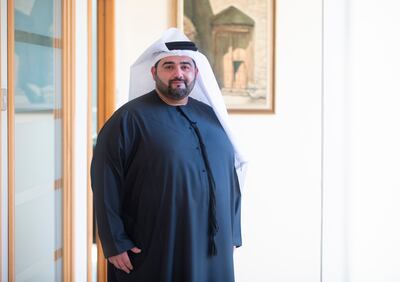Emiratis say they deserve the chance to prove their worth in the private sector as companies step up efforts to bolster their local workforce.
By January 1, 2023, companies with more than 50 employees must ensure 2 per cent of their staff is Emirati under a wider government drive to have UAE citizens make up 10 per cent of the private sector workforce by 2026.
Companies registered in free zones are exempt from Emiratisation targets but are encouraged to hire UAE citizens.
High-achieving citizens said the initiative provides an opportunity for Emiratis to move up the career ladder and demonstrate they are not being hired to simply meet a quota.
Emiratis keen to rise to the challenge
Fatima Al Qubaisi, legal counsel at a bank and a Harvard graduate, said Emiratis are “professional, capable and eager to learn”.
“Emiratis do not want to be a quota or to swipe in and out. I believe that people deep down want to be an asset to their company, to contribute in order to feel fulfilled in a job,” she said.
“Private companies enable Emirati employees to grow at a fast pace, be challenged and to be in a diverse and dynamic environment.
“People with private sector experience often have adapted to a faster pace of working, it may be less hierarchal and there is always space to grow.”
Abdulla Galadari, senior partner within Galadari Advocates and Legal Consultants, called for more openness towards Emiratis in a private sector that already welcomes other nationalities.
“The UAE is already a melting pot of cultures. In every entity, there are people from all over the world working,” he said.

“In my company, we have people from 18 different nationalities, so why is it different if a local joins?
“We are not aliens — at the end of the day, we are still people.
“In the service industry, when you have different cultures, the product becomes better, a company becomes more diverse, nimble and that is all good.”
Making a cultural connection
Mr Galadari said the visibility of citizens in the service industry was a positive move as they make up only 10 per cent of the UAE population.
“In the banking sector, there is a very good mix of foreign and local workers but it is important to have locals in the service, retail and hospital industries,” he said.
“This will help bring cultures closer. When tourists come here, it would be a good impression for them to see Emiratis working in hotels.”
“Embedding Emiratis who are well-educated individuals in new corporate entities, whether local or foreign, that are setting up will bring the companies closer to the UAE.
“New companies require help in terms of what is the culture of the UAE and this will be accelerated when they have local men and women as colleagues.”
How Nafis supports a switch to the private sector
The government has for years attempted to boost the number of UAE citizens in private companies but public sector hours and wages have typically been more attractive.
Over the past year, there has been rising interest in the private sector due to the Nafis initiative, a federal government programme that provides a monthly salary support of maximum Dh7,000 to Emiratis who earn up to Dh30,000 every month and covers child allowance benefits and pension contributions.
Abir Araki, Emiratisation and nationalisation manager at Cigna Middle East and Africa, said Emiratis would make up more than 10 per cent of the insurance company's workforce by the end of the year and it is aiming to grow those numbers.
“Earlier, there was a perception among Emiratis that the private sector may not offer them the opportunities they are seeking,” she said.

“However, in recent times, changes in the regulatory framework have ensured that qualified UAE nationals are recognised and trained to build and successfully grow their careers within private sector organisations.
“As an employer who tried to attract Emirati talent, we realised that there was a preference among the UAE nationals to take up employment in public sector establishments.
“Things have changed now. Backed by Cigna’s training, coupled with the launch of programmes such as Nafis, we can attract more UAE nationals and we hope to double our Emirati pool.”
With Cigna’s focus on upskilling Emiratis and the Nafis platform identifying talent, more Emiratis were recruited.
Ms Araki, who worked in the financial sector for more than 20 years, said a supportive work environment was key.
“The private sector must look beyond competing with the public sector on pay and benefits in order to attract and retain Emirati talent,” she said.
“It is important to create a positive work environment.
“It’s also important to recognise employee contribution.”










